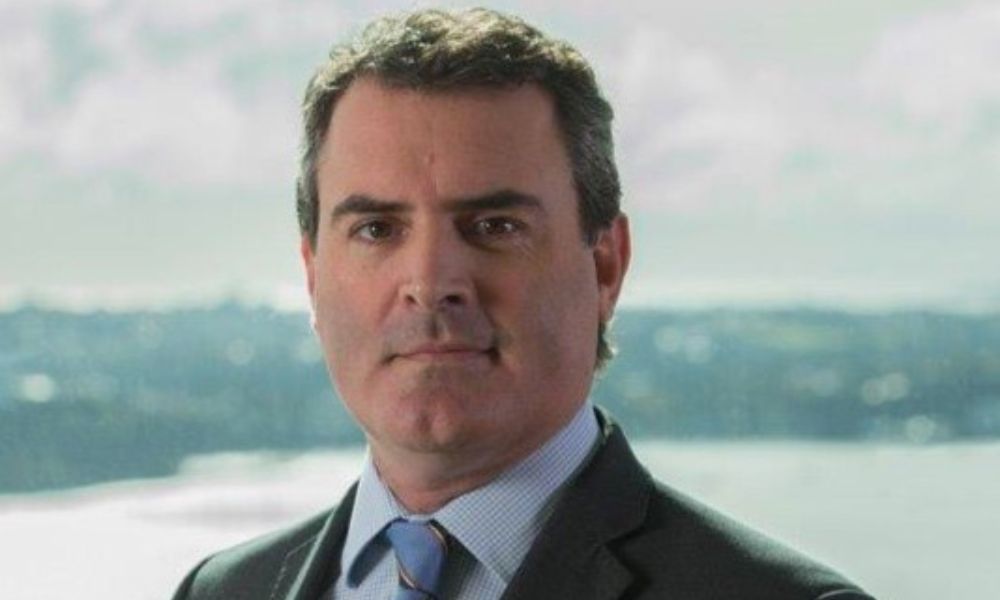Liability insurance in construction – what’s happening in the market?

Liability insurance in construction – what’s happening in the market? | Insurance Business New Zealand
Professionals Risks
Liability insurance in construction – what’s happening in the market?
NZ country manager calls it “a challenging area” of the insurance industry
Professionals Risks
By
Terry Gangcuangco
“It’s a challenging area of the insurance industry.”
That was the assertion made by Berkshire Hathaway Specialty Insurance (BHSI) New Zealand country manager Cameron McLisky (pictured) when he sat down with Insurance Business to talk about liability insurance for construction projects and construction professionals.
Significant inflationary pressure
According to the BHSI executive, there’s a “very real” COVID hangover in the form of inflation, which he said is causing “a whole lot of problems” in the liability insurance space in relation to construction.
“Are things back to normal post-COVID? I’m not sure they are,” McLisky said. “The COVID restrictions have lifted, but the hangover from COVID is very real. What I mean by that is, in particular, inflation. The ability to get construction materials is harder, and the cost of obtaining them is much higher.
“So, there’s been a very significant trend in the value of projects going up – cost overruns – and shortage of materials, and just a general inflationary pressure in the construction and building industry is a noticeable post-COVID trend.
“There was a real issue with logistics and shipping and the ability to get things imported on time. That’s sort of resolved itself, but there’s still a hangover in terms of the cost of goods. That pressure is everywhere in the construction industry.”
The increased cost, among other things, is impacting risk pricing, McLisky noted; not to mention the greater likelihood of disputes.
The country manager said: “When projects are coming to an end and they’ve costed more and taken longer than originally budgeted – that can be a source of contractual disputes between the principals and the construction companies. So, that’s definitely one implication.
“Obviously, construction is an industry that traditionally runs on pretty tight margins. There was a BWA [Insolvency] report that said construction company insolvencies were up 78% over the same time last year. So, we would expect to see the construction industry continue to be distressed in terms of the risk of failure or the risk of insolvency.
“That’s a pretty timely thing to be talking about when the Supreme Court’s just ruled on the Mainzeal case, which was the collapse of Mainzeal a number of years ago and claims against the directors arising out of it. So, it’s definitely on the insurance industry’s mind that all of the inflationary and economic pressures are going to lead to cost blowouts, time blowouts; it’s going to lead to contractual disputes and to the risk of insolvencies, and all that leads to insurance claims.”
Challenges on both ends
The challenges, meanwhile, impact both insurance companies and buyers of insurance.
Speaking about the hard market, McLisky said: “It’s a challenging area of the insurance industry, particularly professional indemnity (PI) for design professionals – architects, engineers – but even more difficult when it comes to buying insurance for large projects. We’ve seen a number of large projects in New Zealand perform badly and result in litigation, so I would say it’s still a tough area for people to buy insurance.
“Particularly for project PI, the cost and availability of capacity is far more restrictive than it was. It costs higher and the capacity is less available than it was, say, five, six years ago. There’s no doubt about that, and that continues to be the case. Generally speaking, people can still get cover; it’s just going to cost them a lot more than it did traditionally.”
As for the insurer side, the challenge lies mainly on pricing, with inflation affecting companies’ ability to budget and plan correctly for cost overruns and construction claims.
“When something burns down or when there is a problem and you have to rebuild something or repair something, the cost of that rebuild or repair is significantly higher than it was one or two years ago,” McLisky told Insurance Business. “And that leads to all sorts of potential for disputes.
“When an insurance company thinks something is worth X, and it’s worth X plus 50%, they haven’t necessarily charged that premium. So, it does lead to difficulties for insurance companies in pricing risks correctly. It’s more of a challenge of understanding the value at risk. By the time the project is finished, that project could be worth a lot more than you originally priced the risk at. So, inflation causes a whole lot of problems.”
He went on to say: “On a project, you’re writing something that is going to take four or five, six years to be completed. It’s very hard when you’re making a future prediction as to not only the cost of something but how the project is going to run. Is it going to run on time, is it going to run according to plan, is it not going to encounter any unexpected hurdles? It’s a difficult thing to get right, and it’s even harder to get right when you’re in a high inflationary environment.”
The silver lining, however, is there won’t be a shortage of opportunities.
“There’s talk of a pipeline of large projects in New Zealand – roading projects, rail projects, tunnelling projects – so the opportunity is there,” McLisky said. “Those are challenging, very difficult projects for all involved, including the insurance companies. But given New Zealand’s infrastructure needs over the coming years and decades, I don’t think there’s going to be any shortage of large project opportunities. It’s really just managing the risk.”
What do you think about this story? Share your thoughts in the comments below.
Related Stories
Keep up with the latest news and events
Join our mailing list, it’s free!






